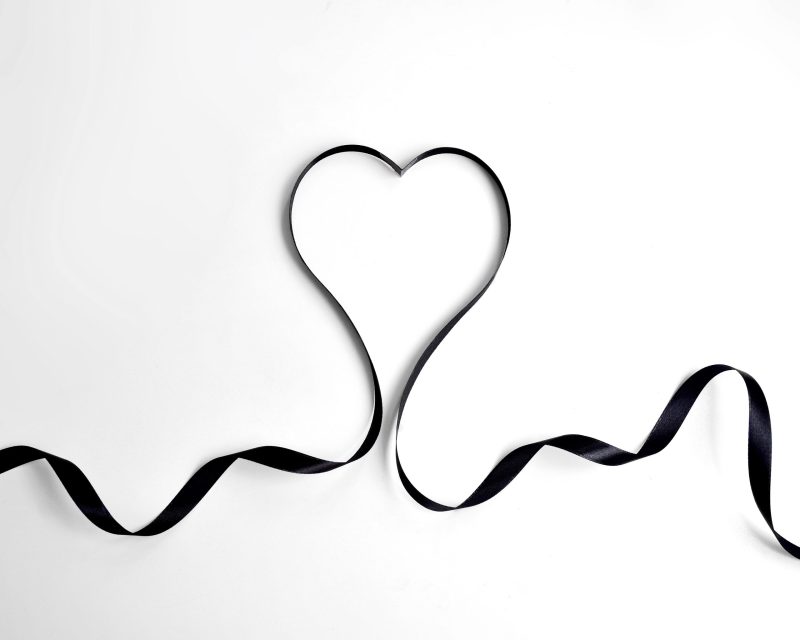The feeling of love has always been symbolized by the heart symbol and is considered a feeling that arises from the deepest part of the heart. Even when someone feels hurt by love, the term being used is “heartbreak.” From these premises, is love really a feeling that originates from the deepest part of the heart?
This article will discuss what love really is and where it comes from. Is it really from the heart or from something else?
What is love?
Before discussing where love comes from, it is better to understand what love is. Almost all groups of people can feel love, be it teenagers or adults, men or women. Sometimes people can’t control the love they feel for other people.
Based on research conducted by the University of Missouri, love is an emotion and behavior displayed through intimacy, passion, and commitment.
Love also has various forms.
Additionally, it also has unique characteristics that cause it to change over time. Regarding the changes, this is related to the positive emotions and negative emotions that are felt.
Another research from Yale University also reveals what love is — a condition when a person feels pleasant feelings for another person. This is followed by the desire to continue to be with a loved one. In fact, there will be an incomplete feeling without the presence of a loved one.
The origin of love
After understanding what love is, the next step is to understand where it actually comes from. Many people think that love is a feeling that arises from the heart because when you feel attracted to another person, your heart will beat faster. Not only that, when someone feels heartache, they will also feel pain in the chest.
Through this opinion, does it show that love really comes from the heart?
According to Science in the News, love is a condition that consists of three categories: lust, attraction, and attachment. These three categories have unique characteristics because they are produced by hormones originating from the brain.
For example, lust is produced by the hormones testosterone and estrogen. Attraction comes from the hormones dopamine, norepinephrine, and serotonin. Attachment is produced by the hormones oxytocin and vasopressin.
Based on this explanation, you can deduce where love actually comes from. Love is a condition that arises from the brain. The underlying reason is that love is produced by various hormones from the brain, not the heart.
A similar opinion was also expressed by Larry Sherman, PhD, a professor from the OHSU School of Medicine, who stated that love does not originate from the heart, but from the brain. Sherman said that t is the chemical compounds in the brain that encourage feelings of love, lust, and madness. The neurotransmitters connected to it include dopamine, serotonin, and norepinephrine which flood the brain, giving rise to a feeling of emotional connection with the desired object — in this case, a loved one.
The process of the emergence of love
Before falling in love with someone, there are several conditions that must be felt first. Attraction precedes love. Below are phases where different sets of brain chemicals operate:
Phase 1
When you feel attracted to someone, a part of the brain called the ventral tegmental area (VTA) will produce dopamine which causes a feeling of well-being. This dopamine will continue to increase, causing feelings of happiness and euphoria.
This increase in dopamine levels also causes an increased feeling of attraction toward the person you like. Additionally, there will be a desire for more of the said feeling. This condition is not much different from the feeling of addiction felt by someone.
Phase 2
When in love, you tend to think that all your problems disappear. It is also a chemical process that occurs in the brain. In this process, the part of the amygdala that controls perception, fear, anger, and sadness is inactive.
The brain will also dampen the abilities of the middle and front cortex, which are used for logic, criticism, and thinking clearly. This causes you to continue to feel safe and comfortable with the person you like without thinking about bad things.
Phase 3
In the last phase, the brain releases oxytocin, also known as the love hormone, so that the bond you feel with the person you like will be even stronger. Also, doing certain things such as hugging, kissing, or making love, will cause the brain to produce oxytocin so that it will continue to feel love.
In conclusion
Some people think that love is a feeling that arises from the heart. Unfortunately, that is wrong because love is a chemical process in the brain. It is a condition consisting of lust, attraction, and attachment, all formed by hormones produced in the brain.
The chemical processes that occur in the brain start when a person feels attracted to another person, which results in a feeling of security and comfort toward that person. Furthermore, the feeling will continue to develop until the brain produces oxytocin, which finally causes a person to fall in love with the person they like.
Therefore, even if it sounds unromantic, there is science in love.
If you would like to see more resources on the biology of romantic emotions, check out the Relationships Science Labs. Using the research of the Institute for Life Management Science, the lab produces courses, certifications, podcasts, videos, and other tools. Visit the Relationship Science Labs today.
Photo by Pegah Sharifi


